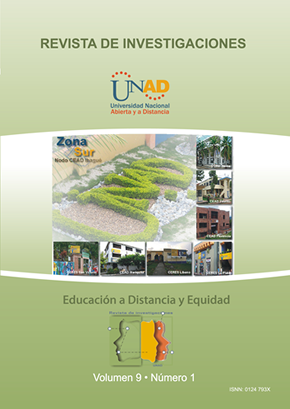Cuando la REVISTA DE INVESTIGACIONES UNAD recibe la postulación de un original por parte de su autor, ya sea a través de correo electrónico o postal, considera que puede publicarse en formatos físicos y/o electrónicos y facilitar su inclusión en bases de datos, hemerotecas y demás sistemas y procesos de indexación. REVISTA DE INVESTIGACIONES UNAD autoriza la reproducción y citación del material de la revista, siempre y cuando se indique de manera explícita el nombre de la revista, los autores, el título del artículo, volumen, número y páginas. Las ideas y conceptos expresados en los artículos son responsabilidad de los autores y en ningún caso reflejan las políticas institucionales de la UNAD
Simulación multimedia interactiva para el logro del aprendizaje procedimental del manejo del microscopio
Se llevó a cabo una investigación para comparar la efectividad de dos estrategias instruccionales para el logro del aprendizaje procedimental: una basada en el uso de una secuencia instruccional siguiendo cinco principios de aprendizaje de Merrill, y la otra, basada en el uso de secuencias autónomas. Adicionalmente, se determinó la manera como los estudiantes interactúan con las actividades de instrucción en relación con su estilo preferencial de aprendizaje. Se utilizó un diseño experimental entre dos grupos, con postprueba únicamente con estudiantes en una universidad de educación a distancia. Los resultados mostraron que la secuencia de aprendizaje basada en los principios de aprendizaje de Merrill fue más efectiva para el logro del aprendizaje procedimental en la dimensión conocimiento declarativo y en el indicador tiempo de aprendizaje, aunque no mostró efecto significativo sobre el indicador precisión en la destreza técnica. No hubo diferencia estadística entre los estilos de aprendizaje y la dedicación de tiempo a la actividad preferencial de aprendizaje, pero sí hubo tendencias diferentes en la selección de actividades de instrucción. Los resultados mostraron que la simulación multimedia utilizada se adaptó a los cuatro estilos de aprendizaje.




